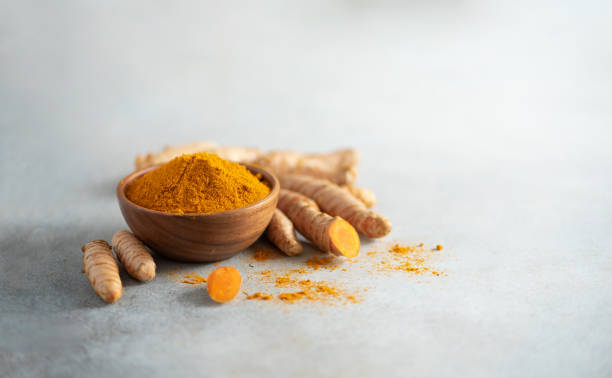Table of Contents
ToggleFor centuries, people have used turmeric, a bright yellow spice, in traditional medicine and cooking. Curcumin, its active ingredient, possesses anti-inflammatory and antioxidant properties, making it a popular supplement for various health issues.
One of the primary benefits of turmeric is its anti-inflammatory properties. Chronic inflammation can lead to a range of health issues, including heart disease, cancer, and arthritis. Turmeric’s active ingredient, curcumin, is an effective anti-inflammatory agent and may help reduce the risk of these diseases.
Moreover, turmeric may be beneficial for heart health. Studies have suggested that curcumin can help lower cholesterol levels, reduce blood pressure, and improve the function of blood vessels. By improving these risk factors, turmeric may help reduce the risk of heart disease.
Specifically, we will look at how turmeric can improve men’s health, including reducing inflammation, boosting brain function, and supporting heart health. Additionally, we will discuss how turmeric can enhance athletic performance and help healthy testosterone levels.
Overall, turmeric is a versatile and powerful spice that may offer a range of benefits for men. Whether you’re looking to reduce inflammation, boost brain function, or support heart health, turmeric may be a valuable addition to your diet and supplement regimen.
What is the difference between turmeric and curcumin?

Turmeric is a bright yellow spice that is commonly used in Indian and Middle Eastern cooking. It is made from the root of the turmeric plant and has been used for centuries as a natural remedy to reduce inflammation and improve digestion.
Curcumin, on the other hand, is a compound found within turmeric that is responsible for many of its health benefits. While turmeric contains only around 3% curcumin by weight, curcumin supplements are available that provide much higher concentrations of this beneficial compound.
The major benefits of turmeric and curcumin are their ability to reduce inflammation and support overall health.
Curcumin supplements reduce joint pain and stiffness and lower inflammation in people with osteoarthritis. Turmeric supplements offer similar benefits and may improve brain function and lower the risk of certain chronic diseases.
In summary, while turmeric and curcumin are closely related, curcumin is the active compound within turmeric that provides many of its health benefits. Curcumin supplements offer a more concentrated dose of this beneficial compound, while turmeric supplements also offer many of the same benefits and can be a convenient way to incorporate this spice into your diet.
Turmeric and health benefits

Turmeric, a bright yellow spice commonly used in Indian and Asian cooking, has been gaining attention for its potential benefits.
In particular, it is effective in treating several health issues. Turmeric can help reduce chronic inflammation, improve heart health, and potentially even reduce the risk of certain types of cancer. There is a growing body of scientific evidence to support the use of turmeric in treating health issues.
A study in the Journal of Medicinal Food showed that curcumin, found in turmeric, can decrease inflammation in the body. Inflammation is often connected to chronic conditions like heart disease, diabetes, and cancer. A study in the Journal of Nutrition indicated that curcumin could improve heart health by reducing bad cholesterol levels and enhancing blood vessel function.
Curcumin works by blocking several inflammatory molecules in the body, preventing the body from triggering an inflammatory response. It also contains antioxidants, which help to protect the body from damage caused by free radicals. These properties make turmeric a potentially powerful tool in the fight against a variety of health issues.
Turmeric has several potential benefits for men’s health, including reducing inflammation, improving heart health, and potentially even reducing the risk of certain types of cancer. T
he active ingredient in turmeric, curcumin, is effective in treating these conditions by blocking inflammatory molecules and containing antioxidants. With further research, turmeric may prove to be an important tool in the prevention and treatment of many health issues.
Specific benefits of Turmeric for men
Turmeric has specific benefits for men, including reducing inflammation and oxidative stress, improving brain function, reducing the risk of heart disease, and potentially reducing the risk of prostate cancer. It can also improve athletic performance and support healthy joints.
Turmeric for anti-inflammatory properties

Turmeric is a powerful spice known for its ability to reduce joint pain and inflammation. Its active ingredient, curcumin, has been shown to inhibit inflammation and reduce pain in people with osteoarthritis and rheumatoid arthritis.
Studies have also shown that turmeric may improve joint mobility and function. In a 2014 study, participants who took a turmeric supplement experienced a significant reduction in knee pain compared to a placebo group.
Other research has found that turmeric can help reduce the need for pain medication in people with joint pain. Incorporating turmeric into your diet or taking a supplement may help improve joint health and reduce pain and inflammation.
Turmeric for rheumatoid arthritis

Turmeric has been gaining popularity for its health benefits, especially its anti-inflammatory properties. This spice has been used for centuries in traditional medicine to treat various health problems, including inflammatory diseases.
Turmeric’s active ingredient, curcumin, has been found to reduce inflammation and swelling, which is why it’s now being studied for its potential use in treating rheumatoid arthritis. Research has shown that turmeric can help reduce joint pain and stiffness, and improve overall joint function.
This is because the anti-inflammatory properties of turmeric can help decrease the production of inflammatory molecules in the body, which are responsible for joint damage in arthritis. In addition to its anti-inflammatory effects, turmeric also has antioxidant properties, which can protect the body from oxidative damage.
While turmeric is not a substitute for medical treatment, adding this spice to your diet may help reduce the symptoms of rheumatoid arthritis and improve your overall health.
Turmeric for brain health

Turmeric, a spice commonly used in Indian cuisine, has been found to benefit brain health. The active compound in turmeric, curcumin, has properties that can help improve brain function and memory.
Scientific studies have shown that curcumin can increase a growth hormone called a brain-derived neurotrophic factor, which is crucial for brain function and the formation of new memories. Furthermore, researchers have discovered that curcumin decreases the risk of cognitive decline and may even assist in treating neurodegenerative diseases like Alzheimer’s.
Turmeric for heart health

Recent research suggests that it may also be beneficial for heart health. Curcumin, the active ingredient in turmeric, has been shown to reduce inflammation and oxidative stress, both of which are risk factors for heart disease.
A study published in the American Journal of Cardiology found that curcumin supplementation improved endothelial function, which is critical for maintaining healthy blood vessels. Other studies have found that curcumin can lower blood pressure, improve lipid profiles, and reduce the risk of atherosclerosis. Overall, turmeric may be a promising natural supplement for improving heart health.
Curcumin might delay aging and combat chronic diseases related to age
Curcumin, the active compound found in turmeric, delays aging and combats chronic diseases related to age, according to studies. Research indicates that the properties of curcumin may help in protecting against the development of certain age-related conditions.
Curcumin, in addition to promoting prostate health, has been associated with improving digestive health by reducing inflammation in the gut.
The turmeric benefits don’t stop there as it also has the potential to improve brain function and lower the risk of heart disease. With its wide range of health benefits, adding turmeric to your diet may be a simple and effective way to support your overall health and well-being.
Incorporating turmeric into your diet
Incorporating turmeric into your diet is a great way to add flavor and health benefits to your meals. People commonly use turmeric in Indian and Middle Eastern cuisine for its anti-inflammatory compound, curcumin.
To consume turmeric, you can add it to your meals as a spice or take it as a supplement. One popular way to use turmeric is to make golden milk, a drink made with turmeric, milk, and other spices. You can also add turmeric to your morning smoothie or sprinkle it on roasted vegetables.
To make the most of turmeric’s health benefits, it’s important to consume it with black pepper, which can increase the body’s absorption of curcumin. You can also mix turmeric with healthy fats like olive oil or coconut oil to increase absorption.
When incorporating turmeric into your diet, it’s important to keep in mind that it may interact with certain medications, including blood thinners and drugs for diabetes. If you are taking any medications, it’s best to speak with your healthcare provider before adding turmeric to your diet.










